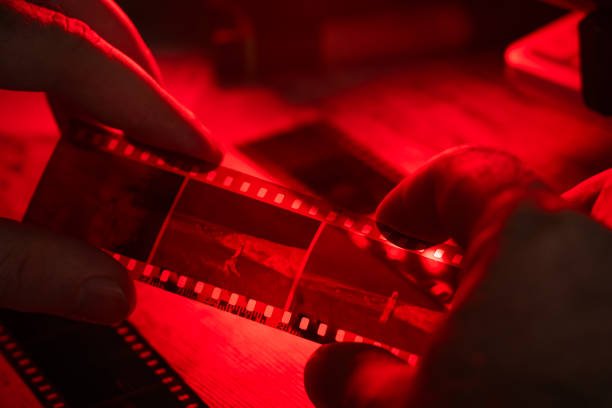The Silent Crisis of Competence
We live in a world where one glitch, blackout, or signal drop is all it takes to render the modern man helpless. He can swipe, tap, and scroll with Olympic-level precision — yet he’s clueless when his phone dies, his GPS fails, or the power grid flickers off.
This isn’t just a minor inconvenience.
It’s a crisis of competence.
We’ve outsourced our survival, our memory, and even our thinking to devices. And while the conveniences of the digital age are undeniable, they’ve come at a cost — the slow erosion of manual skills that once defined the competent, resilient, and self-reliant man.
But in 2025, there’s a quiet revolution. High-performance men, stoic thinkers, and modern warriors are turning back to the analog. They’re rekindling the ancient crafts, the mechanical arts, and the skills that don’t need a battery to function.
This is Analog Mastery — the deliberate pursuit of manual expertise in a world of fragile digital dependencies.
Let’s dive into 7 timeless manual skills that every modern man should relearn to become untouchable in any scenario.
Table of Contents
1. Morse Code: The Original Resilient Communication Protocol
There’s something deeply masculine about knowing how to send a message through nothing but beeps, flashes, or knocks.
Morse Code, developed nearly 200 years ago, remains an elegant and unbreakable communication method. It was a lifeline for soldiers, sailors, and spies, transmitting critical messages across battlefields, oceans, and continents when voice channels were impossible.

Why Morse Code Still Matters:
- Emergency Preparedness: When phones and radios fail, Morse can transmit via flashlight, mirror, or sound.
- Mental Dexterity: Learning and interpreting Morse builds memory retention and sharpens pattern recognition.
- Stealth Communication: It enables silent, discreet exchanges — invaluable in survival or tactical scenarios.
You can start with simple exercises — memorize the alphabet in Morse, practice tapping sequences, or use a flashlight to signal across distances.
When everyone else is mute in a blackout, the analog man can still communicate.
2. Ham Radio: The Power of Long-Distance Without the Internet
We tend to forget: before satellites, there was ham radio — a global, unmediated network of licensed amateurs capable of talking across continents with nothing but antennas, transceivers, and ingenuity.
Ham radio isn’t just an old man’s hobby. It’s tactical, technical, and incredibly liberating.
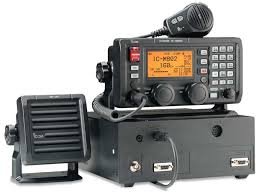
Why Ham Radio is Analog Mastery:
- Independence from Infrastructure: When cell towers fail, ham frequencies stay alive.
- Technical Mastery: Building, tuning, and operating a rig demands hands-on knowledge of electricity, frequencies, and atmospheric conditions.
- Global Brotherhood: The ham radio community is a vast, analog brotherhood spanning cultures and borders.
Getting started requires a license, a beginner’s radio kit, and some study. But once you’re on the airwaves, you hold a lifeline that doesn’t rely on Big Tech.
This is communication sovereignty.
3. Reading Analog Clocks: The Mindful Art of Time Discipline
Most men today tell time digitally. But reading an analog clock does more than track hours — it cultivates a physical awareness of time’s passage.
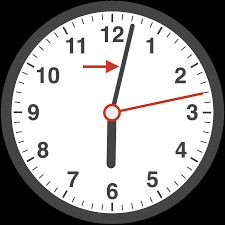
Understanding an analog dial teaches:
- Spatial Awareness: Visualizing time as a circle strengthens mental mapping.
- Pacing and Patience: Unlike digital clocks that count to the second, analog time feels natural and cyclical.
- Independence from Devices: A mechanical wristwatch or wall clock never needs recharging.
Wearing a mechanical watch isn’t just fashion — it’s a daily reminder that you control your schedule, not a digital alert.
In mastering timekeeping, a man learns punctuality, presence, and foresight — three traits essential to leadership.
4. Film Photography: Creating Art Without Algorithms
Anyone can snap 500 digital photos, slap on a filter, and post online. But few can compose, shoot, and develop a meaningful photograph on film — where every frame counts, every choice is intentional, and there’s no undo button.
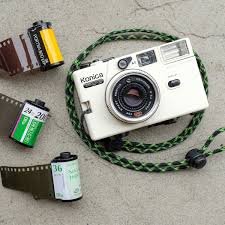
Film photography is a masterclass in:
- Patience: You have limited shots — every one must be calculated.
- Craftsmanship: You adjust aperture, shutter speed, ISO — nothing is automated.
- Delayed Gratification: You don’t see the result instantly; you wait, develop, and sometimes fail.
Film forces you to slow down, observe your environment, and commit to a moment — traits the fast-paced digital world has eroded.
Grab a vintage 35mm or medium format camera, load some black and white film, and start seeing the world with analog eyes.
5. Map Reading & Navigation: Master the Land Without GPS
If your phone dies on a hiking trail, could you still find your way home?
Map reading and navigation was once a rite of passage for scouts, soldiers, and adventurers. Today, it’s a forgotten art — but an essential pillar of Analog Mastery.
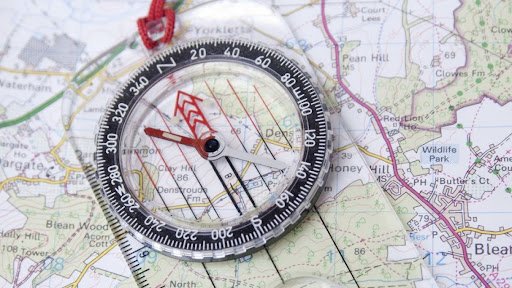
Core Navigation Skills:
- Topographic Map Reading: Understanding terrain, elevations, and landmarks.
- Compass Use: Finding true north without satellites.
- Dead Reckoning & Pacing: Tracking your position by distance and bearing.
Practicing these skills reconnects you to the earth, boosts memory, and fosters independence. Plus, there’s primal satisfaction in knowing that no man, no machine, and no storm can leave you lost.
Master this, and you’ll never fear being off-grid.
6. Mechanical Watch Maintenance: Engineering in Miniature
The mechanical watch is a marvel of micro-engineering — hundreds of tiny gears, springs, and jewels working in harmony to keep time.
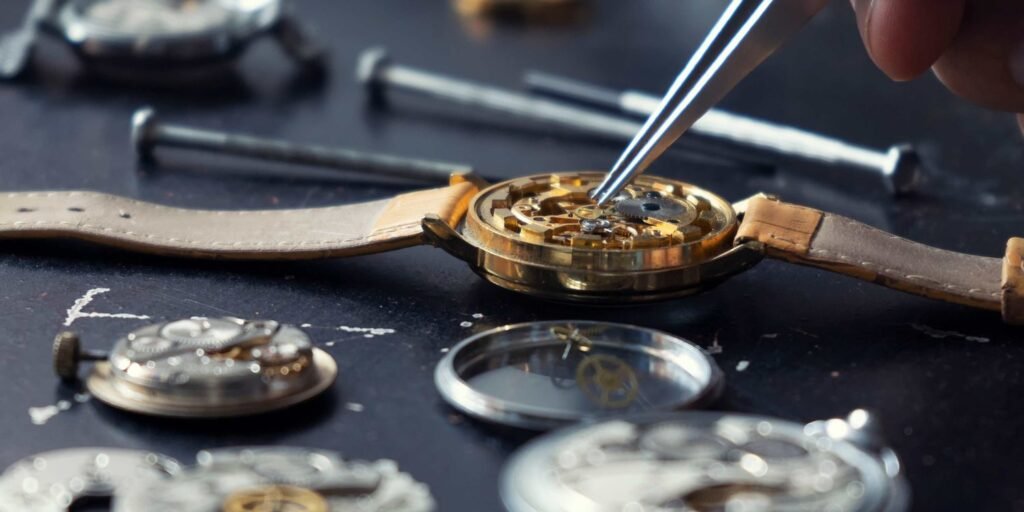
Learning to maintain and repair a mechanical watch isn’t just a hobby — it’s an exercise in:
- Precision: Working with tiny components refines your motor skills.
- Patience and Discipline: Every task requires care, caution, and focus.
- Mechanical Understanding: It builds respect for engineering and craftsmanship.
Start by learning how to clean, oil, and calibrate a basic timepiece. Progress to disassembly and part replacement.
You’ll gain not just a skill — but a relationship with an object designed to outlive you.
7. Analog Journaling: The Warrior’s Written Reflection
Journaling by hand is not a diary — it’s a battlefield debrief with yourself.
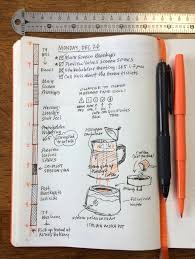
With a fountain pen and quality paper, journaling becomes a practice of mental fortification. It trains:
- Memory Retention: Writing by hand embeds knowledge deeper.
- Emotional Intelligence: Processing thoughts on paper clarifies emotions.
- Strategic Thinking: Reflection leads to better decisions.
Analog journaling is a daily ritual — a way to slow the mind, capture insights, and build a legacy of your thoughts.
Forget note-taking apps — your leather-bound journal is your private command center.
Bonus Analog Mastery Skills to Pursue
If you’re serious about reclaiming analog competence, add these to your arsenal:
- Knots & Rope Craft: From boating to climbing, knowing knots is pure survival skill.
- Manual Typewriting: Rediscover writing focus with a typewriter — no distractions, no backspace.
- Hand Tool Carpentry: Build with saws, chisels, and planes — no power tools required.
- Leather Crafting: Create durable, functional goods from raw hide.
- Bushcraft & Fire Making: Survive and thrive in nature without tech.
Each skill hones a part of your mind and body that modernity has dulled.
FAQ: 20 Insightful Questions About Analog Mastery
1. What is Analog Mastery and why does it matter today?
Analog Mastery is the deliberate practice of manual, pre-digital skills like Morse code, map reading, and mechanical repair. It matters because it builds resilience, independence, and competence in a world overly reliant on fragile digital tech.
2. How can mastering analog skills improve mental toughness?
Analog skills demand patience, focus, and problem-solving without instant feedback. Practicing them strengthens discipline, sharpens memory, and builds confidence through tangible accomplishments.
3. Is Morse code still relevant in the age of smartphones?
Yes. Morse code works without power grids or internet, making it a valuable emergency communication method. It also enhances cognitive skills and offers a unique, timeless form of connection.
4. How do I start learning ham radio if I’ve never touched one before?
Begin by studying for the amateur radio license using online guides and local clubs. Buy a beginner’s handheld transceiver and practice basic communication and frequencies with fellow hams.
5. Why should I bother with a mechanical watch instead of a smartwatch?
Mechanical watches don’t rely on batteries or software updates. They symbolize craftsmanship and discipline, teaching you to value precision, patience, and analog time awareness.
6. Can analog skills actually help in survival situations?
Absolutely. Skills like map reading, Morse code, and ham radio provide reliable communication and navigation when digital devices fail or are unavailable.
7. What are the best beginner-friendly film cameras for men to try?
Popular choices include the Canon AE-1, Nikon FM2, and Olympus OM-1. These offer manual controls and durability, making them ideal for learning film photography basics.
8. How can analog journaling improve focus and clarity in a distracted world?
Writing by hand slows your thoughts, deepens reflection, and reduces digital distractions, helping you organize ideas and improve mental clarity.
9. What’s the fastest way to learn map reading and orienteering?
Start with local orienteering courses or workshops, practice reading topographic maps regularly, and learn compass use through hands-on outdoor exercises.
10. Are analog skills purely for survivalists or can they benefit urban men too?
They benefit everyone. Urban men gain enhanced problem-solving, mindfulness, and independence, while survivalists rely on them for practical preparedness.
11. How does film photography differ in mindset compared to smartphone photography?
Film photography requires intentionality, patience, and acceptance of imperfections, fostering mindfulness over instant gratification common with smartphone snaps.
12. Which knots should every man learn for practical daily use?
Start with the square knot, bowline, clove hitch, and taut-line hitch—useful for securing loads, camping, and everyday tasks.
13. What are the cognitive benefits of maintaining and repairing mechanical devices?
It improves fine motor skills, problem-solving, spatial reasoning, and attention to detail, all of which boost brain function and patience.
14. How often should I practice analog skills to retain mastery?
Regular practice is key—aim for at least 20-30 minutes weekly per skill to build and maintain competence over time.
15. Can analog hobbies replace modern digital entertainment?
They can complement or even replace digital distractions by offering deeper satisfaction, creativity, and mental engagement.
16. What tools or resources do I need to start learning watch maintenance?
Basic watchmaker toolkits (screwdrivers, tweezers), cleaning solutions, instructional videos, and practice watches are essential starting points.
17. How can fathers use analog skills to teach their sons resilience?
By involving sons in hands-on activities like map reading, fishing knots, or mechanical repair, fathers pass down valuable life skills and discipline.
18. Is there a community or tribe of men dedicated to analog mastery?
Yes. Ham radio clubs, film photography groups, bushcraft communities, and maker spaces offer networks of like-minded men committed to manual skills.
19. How do analog skills connect to traditional masculinity?
They embody self-reliance, craftsmanship, problem-solving, and physical engagement—core traits historically associated with masculine competence.
20. What’s the long-term advantage of mastering analog skills in a tech-driven job market?
Analog skills foster critical thinking, adaptability, and hands-on expertise that digital automation can’t replace, giving you a competitive edge.
Why Analog Mastery is Your Masculine Edge in 2025
You don’t have to abandon technology to embrace Analog Mastery. This isn’t about rejecting progress — it’s about balancing it.
When you develop manual skills, you:
- Forge Autonomy: Rely less on fragile digital infrastructure.
- Reclaim Competence: Be the man who knows how things work — and how to fix them.
- Enhance Discipline: Every analog craft requires time, patience, and presence.
In 2025, true power is the ability to thrive both on-grid and off.
Be the man who commands both the digital domain and the physical world.
Start Your Analog Mastery Today
The signal will die. The battery will drain. The software will crash. But you — if you master these timeless skills — will not.
👉 Pick one skill today: Will it be Morse Code? Film photography? Map reading? Start small, but start now.
👉 Commit to practice: Set aside weekly time to deepen your craft.
👉 Share your journey: Connect with other men reclaiming analog mastery and build your competence tribe.
Because when the world goes dark, the analog man lights the way. Subscribe to MindGearMen.

